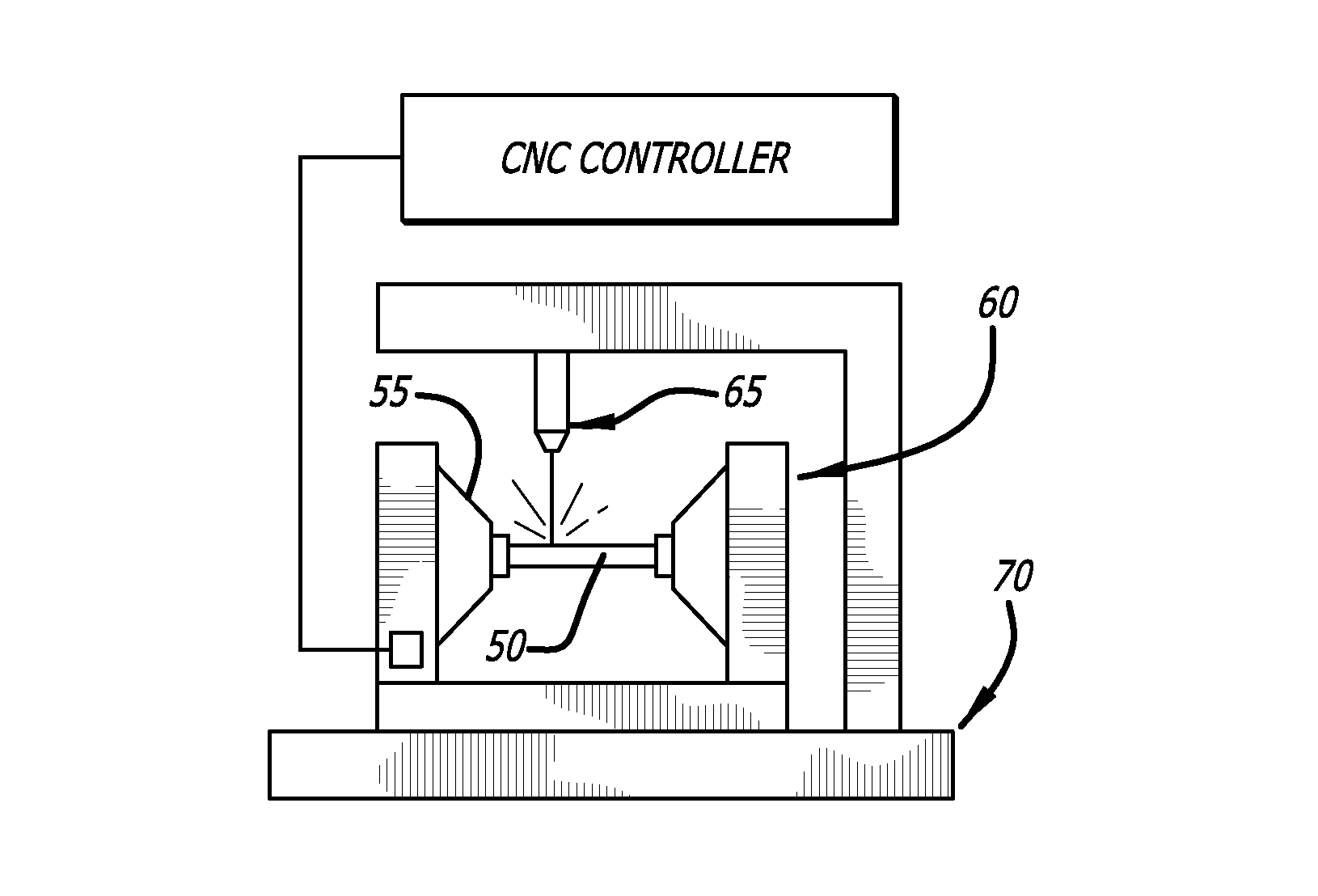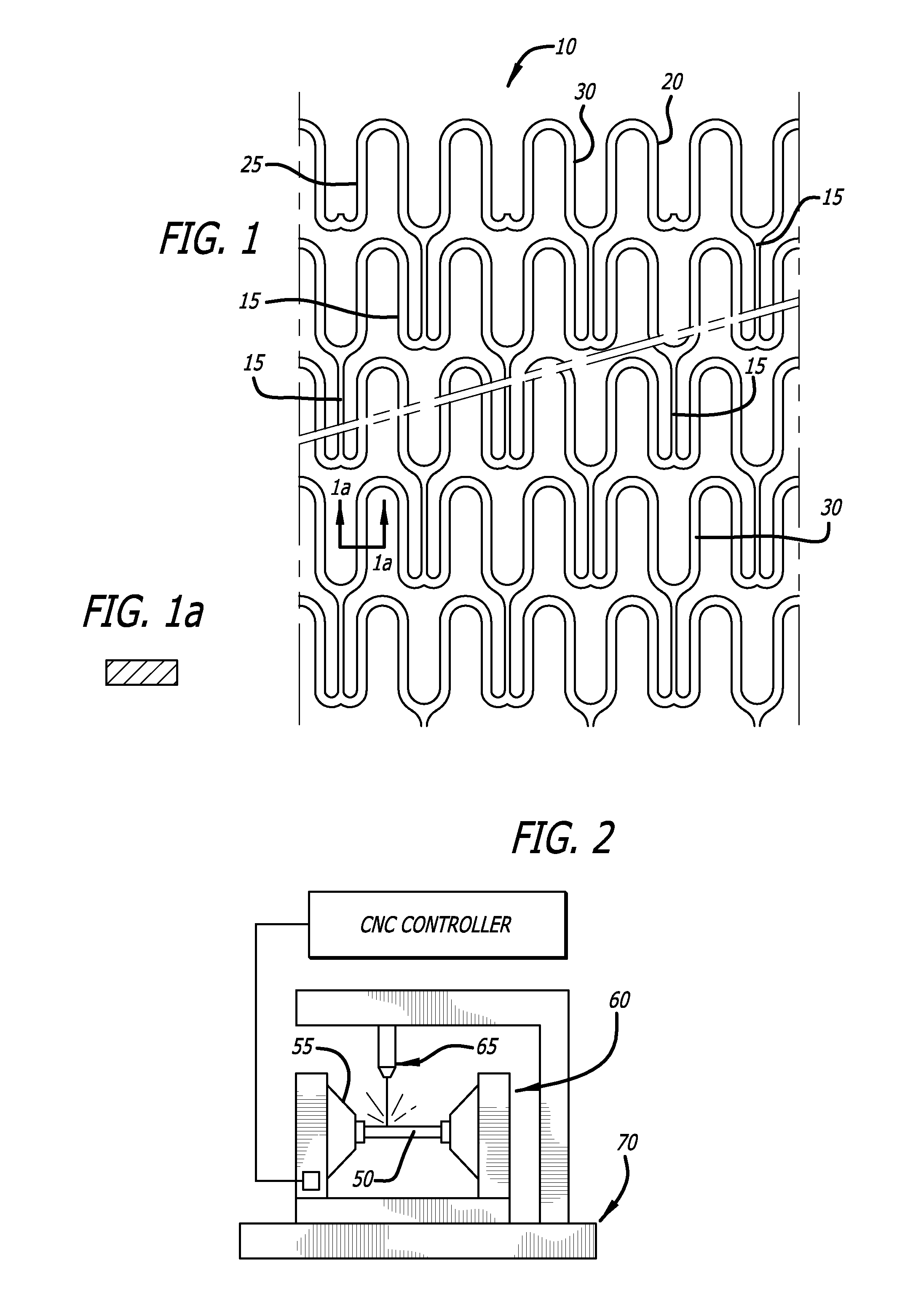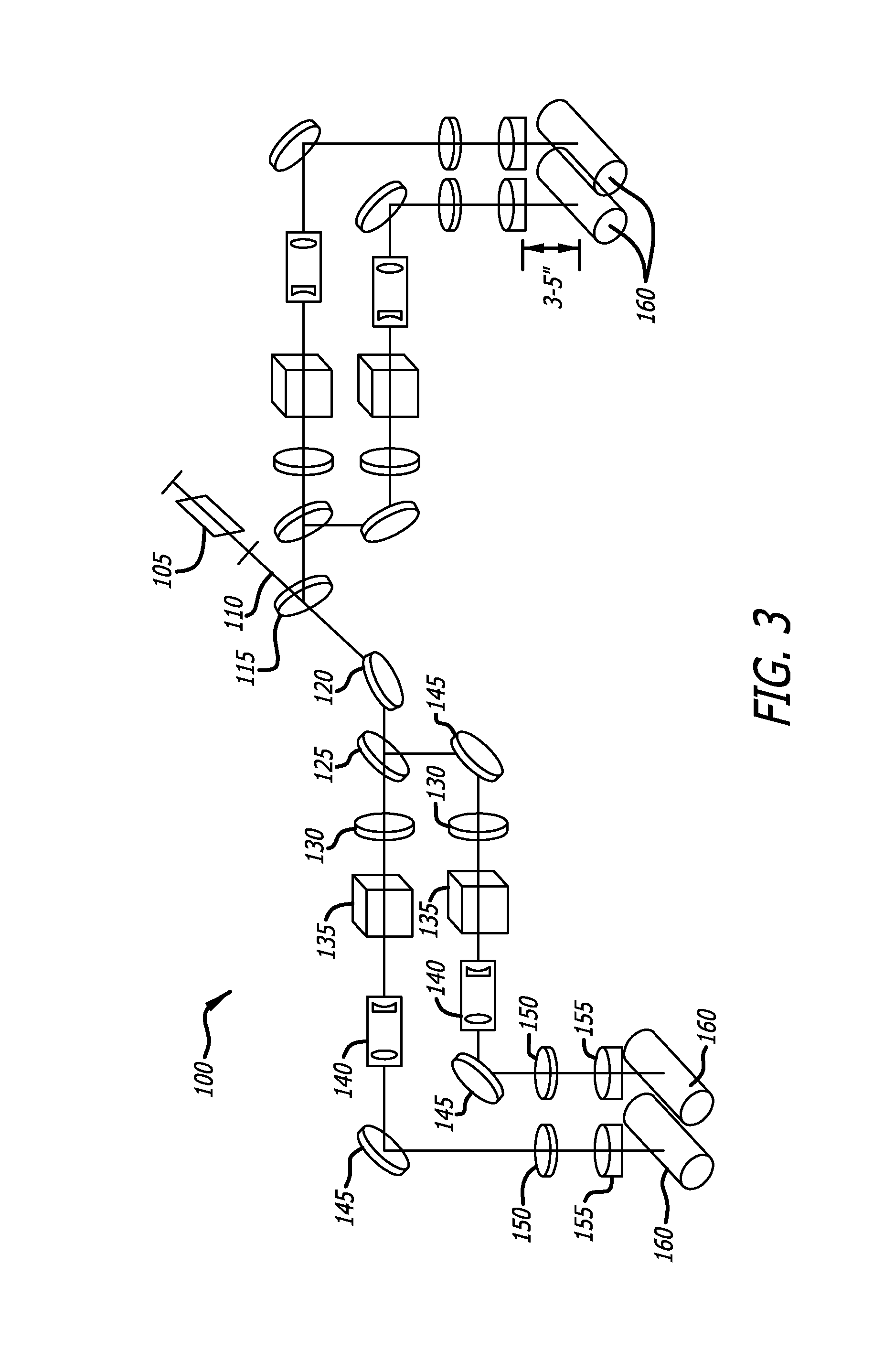Multiple beam laser system for forming stents
a laser system and multi-beam technology, applied in laser beam welding apparatus, manufacturing tools, catheters, etc., can solve the problems of reducing the cutting efficiency of lasers, reoccurring constrictions or blockages, and exacerbate the occurrence of restenosis or thrombosis, so as to improve cutting quality and efficiency.
- Summary
- Abstract
- Description
- Claims
- Application Information
AI Technical Summary
Benefits of technology
Problems solved by technology
Method used
Image
Examples
Embodiment Construction
[0052]FIG. 1 is an enlarged perspective view of a stent 10 illustrating an exemplary stent pattern and showing the placement of interconnecting elements 15 between adjacent radially expandable cylindrical elements. Each pair of the interconnecting elements 15 on one side of a cylindrical element are preferably placed to achieve maximum flexibility for a stent. In the embodiment shown in FIG. 1, the stent 10 has three interconnecting elements 15 between adjacent radially expandable cylindrical elements which are 120 degrees apart. Each pair of interconnecting elements 15 on one side of a cylindrical element are offset radially 60 degrees from the pair on the other side of the cylindrical element. The alternation of the interconnecting elements results in a stent which is longitudinally flexible in essentially all directions. Various configurations for the placement of interconnecting elements are possible. However, as previously mentioned, all of the interconnecting elements of an in...
PUM
 Login to View More
Login to View More Abstract
Description
Claims
Application Information
 Login to View More
Login to View More - R&D
- Intellectual Property
- Life Sciences
- Materials
- Tech Scout
- Unparalleled Data Quality
- Higher Quality Content
- 60% Fewer Hallucinations
Browse by: Latest US Patents, China's latest patents, Technical Efficacy Thesaurus, Application Domain, Technology Topic, Popular Technical Reports.
© 2025 PatSnap. All rights reserved.Legal|Privacy policy|Modern Slavery Act Transparency Statement|Sitemap|About US| Contact US: help@patsnap.com



